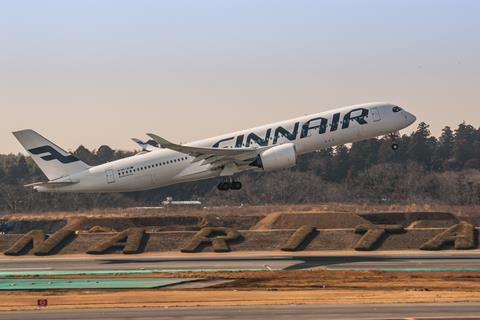A post-war reopening of Russian airspace is an important target for the airline industry, given the congestion and competition concerns created by the current situation, in the view of IATA director general Willie Walsh.
Speaking during a media briefing on 6 December, Walsh explained that congestion over Europe is being exacerbated by airspace restrictions over Belarus, Russia and Ukraine, creating a “major issue” in the region.
“If you look at the closure of Ukrainian airspace, Russian airspace and other parts of the world, the amount of traffic that’s flowing through Europe has increased over certain routes and that’s not sustainable,” he says.
“Longer term, we are going to have to see a return to more normal operations.”
Moreover, once China relaxes its Covid-19 travel restrictions, Walsh notes that its airlines could have a competitive advantage over European peers on Asia-Europe routes, given they can still overfly Russia.

“As we see China relax restrictions and reopen, then the issue of access through Russian airspace becomes a bigger question for the European carriers, particularly if it remains open for Chinese carriers to fly to Europe,” he says.
“The issue is that if Russian airspace is open to some but not all, you have to question why it is closed to some but not all,” Walsh says. “That’s the debate that we are going to have to have as we go through 2023.”
Ultimately, Walsh argues that in the event of the war in Ukraine ending, “we should be looking to reopen Russian airspace to have it accessible to all airlines to transit through the traditional Siberian overflights, so that Europe can access Asia in the most efficient way possible”.
“We have to hope that the war ends,” he adds.
Walsh acknowledges, however, that individual airlines would need to make their own risk assessments regarding Russian overflights.
Speaking in October, Eurocontrol director general Eamonn Brennan explained that the closure of Russian airspace means ”everybody is moving south”, which in turn creates additional congestion in the rest of European airspace.
“In Europe we are operating 90% of our 2019 schedule with 80% of our airspace, so it’s like the bucket has got smaller and the water has got a bit bigger. What should be going up… over Russia, is going down… over Turkey, and this is causing congestion at the peak time of the year,” Brennan said.
Like Walsh, he predicted that the ability of Chinese carriers to overfly Russia, unlike their European counterparts, could become “a contentious issue”.


























